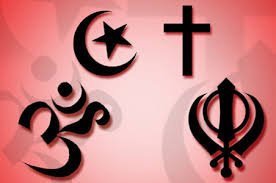Radiance Viewsweekly, in its history spanning over half-a-century, has initiated various fruitful dialogues. Taking a cue from this glorious history, today I am going to share my thoughts on some sincere and honest attempt at initiating a dialogue on as important an issue as Indian secularism.
The Readers’ Pulse column of Radiance (1st Dec 2013) contained some enlightening comments by Mr. Syed Shakil Ahmed Anwar on my article that was published earlier (10th and 17th November 2013) entitled Indian Secularism: An Ideal or Illusion. The learned commentator has argued that he found the said article “both contradictory and misleading”. How was it contradictory? It is explained that the article contained, “…some Judgements to highlight the beneficiary aspect of ‘Indian Secularism’ yet ended under the impression that it is a false ideology to be perished as soon as possible”. And how was it misleading? The letter mentions two things in this regard:
- It first points out the “horrible yet a wonderful coincidence” (let’s forget the contradiction here) that Hindutva forces as well as some hardcore ‘Islamic’ intellectuals are against secularism.
- Secondly, it is asserted that we “don’t need” to refer to dictionaries and encyclopaedias in order to define Indian secularism “as the fundamental rights of the country’s constitution give exemplary definition”. Some court judgements are also helpful in this regard as is mentioned.
In response to the above critique, it would be vital to introduce the structure of the article concerned. The article (which for its length was published in two consecutive issues) consisted of five parts. First part was an introduction mainly through an allegory arguing how secularism avoids some of the very basic questions of life. Second part was an effort to understand secularism as an ideology. It was argued that understanding Indian secularism depends on understanding secularism at first. To use exact words, “An ideology, like a word, may travel far away from its origin and root but it never detaches itself from the same.” It must be noted that this exercise, with the help of dictionaries and encyclopaedias, was an effort to understand secularism per se. The nuances were recognised, from the very beginning, that there are “multitudes of secularism”, Indian variant being one of them.
The third part of the article concentrated on what Indian secularism is in theory. Here, besides Indian constitution, views of scholars and several court judgements were quoted and no stone was left unturned in showcasing what all could be said positively about Indian secularism.
The fourth part of the article was an effort to point out some glaring contradictions in the theory and practice of Indian secularism and it was argued that this contradiction is not a malfunction but very nature of the ideology of secularism.
The fifth part concluded the article with some observations over how Muslims in general and Islamic movements in particular should respond to the secular challenge in future.
Now, if mentioning strong points of one’s opponent and then refuting them is ‘contradiction’, I plead guilty of being contradictory in the said article. And, if it is sufficient for some argument to be dubbed ‘misleading’ only on finding Hindutva forces agreeing with the same, I have no qualms in admitting my guilt yet again not only on opposing secularism but also on many other counts like opposing nudity, homosexuality and pornography, etc.
In short, I argue that Indian secularism cannot be understood in isolation from 1) the theory of western secularism, 2) Indian constitution and court judgements, and 3) practice of secularism in India. All the three are vital for a comprehensive understanding of the phenomenon. Leaving out any one factor can lead to formation of distorted notions like those blind fellows who, instead of describing the complete elephant, regard it as a tail or a leg.
However, ending on a positive note, I endorse the analogy mentioned in the letter in which secularism was regarded as an “illegitimate child”. Though, I wonder what withheld the learned critic from naming the parents of the same.


